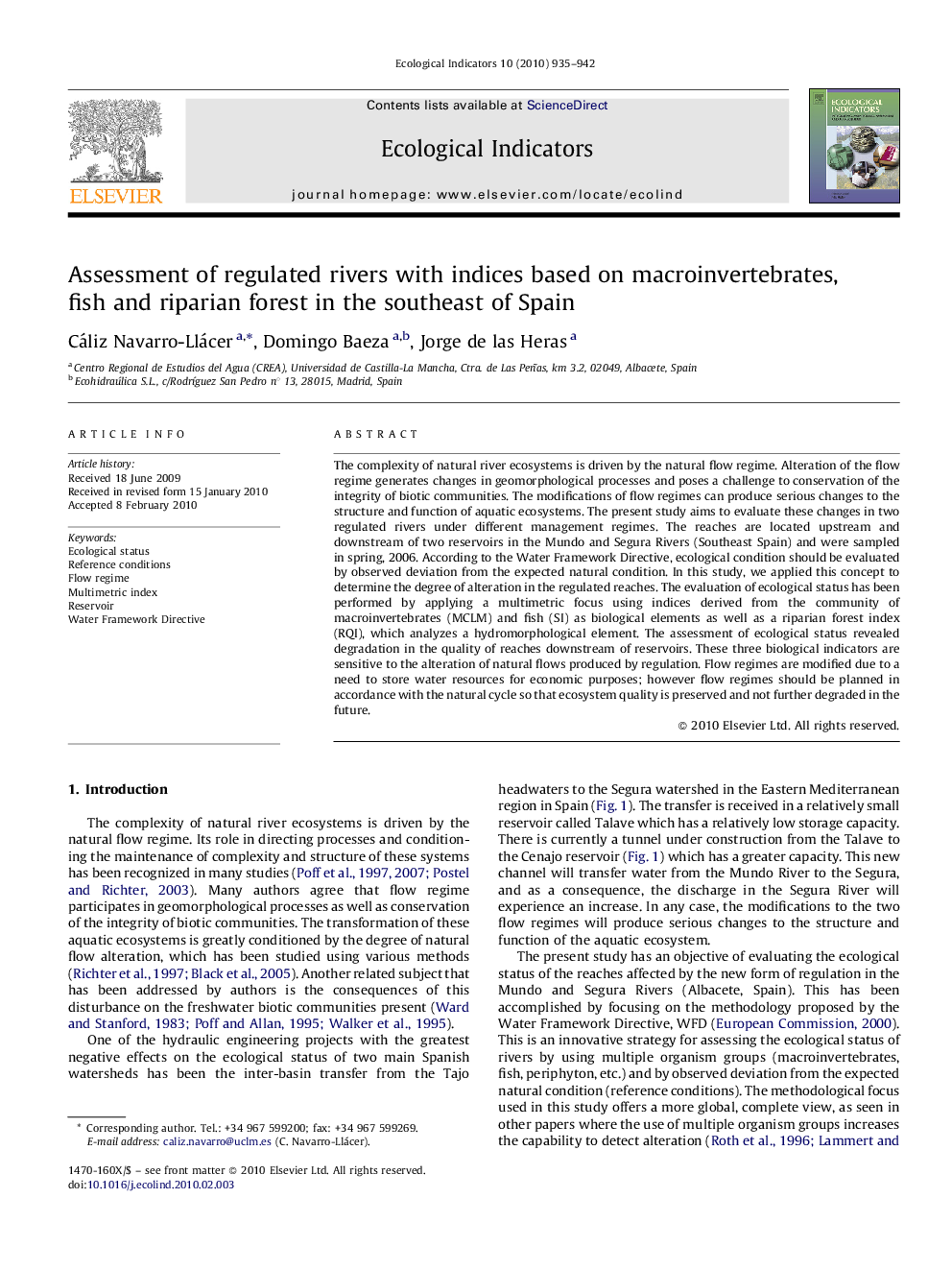| Article ID | Journal | Published Year | Pages | File Type |
|---|---|---|---|---|
| 4374245 | Ecological Indicators | 2010 | 8 Pages |
The complexity of natural river ecosystems is driven by the natural flow regime. Alteration of the flow regime generates changes in geomorphological processes and poses a challenge to conservation of the integrity of biotic communities. The modifications of flow regimes can produce serious changes to the structure and function of aquatic ecosystems. The present study aims to evaluate these changes in two regulated rivers under different management regimes. The reaches are located upstream and downstream of two reservoirs in the Mundo and Segura Rivers (Southeast Spain) and were sampled in spring, 2006. According to the Water Framework Directive, ecological condition should be evaluated by observed deviation from the expected natural condition. In this study, we applied this concept to determine the degree of alteration in the regulated reaches. The evaluation of ecological status has been performed by applying a multimetric focus using indices derived from the community of macroinvertebrates (MCLM) and fish (SI) as biological elements as well as a riparian forest index (RQI), which analyzes a hydromorphological element. The assessment of ecological status revealed degradation in the quality of reaches downstream of reservoirs. These three biological indicators are sensitive to the alteration of natural flows produced by regulation. Flow regimes are modified due to a need to store water resources for economic purposes; however flow regimes should be planned in accordance with the natural cycle so that ecosystem quality is preserved and not further degraded in the future.
